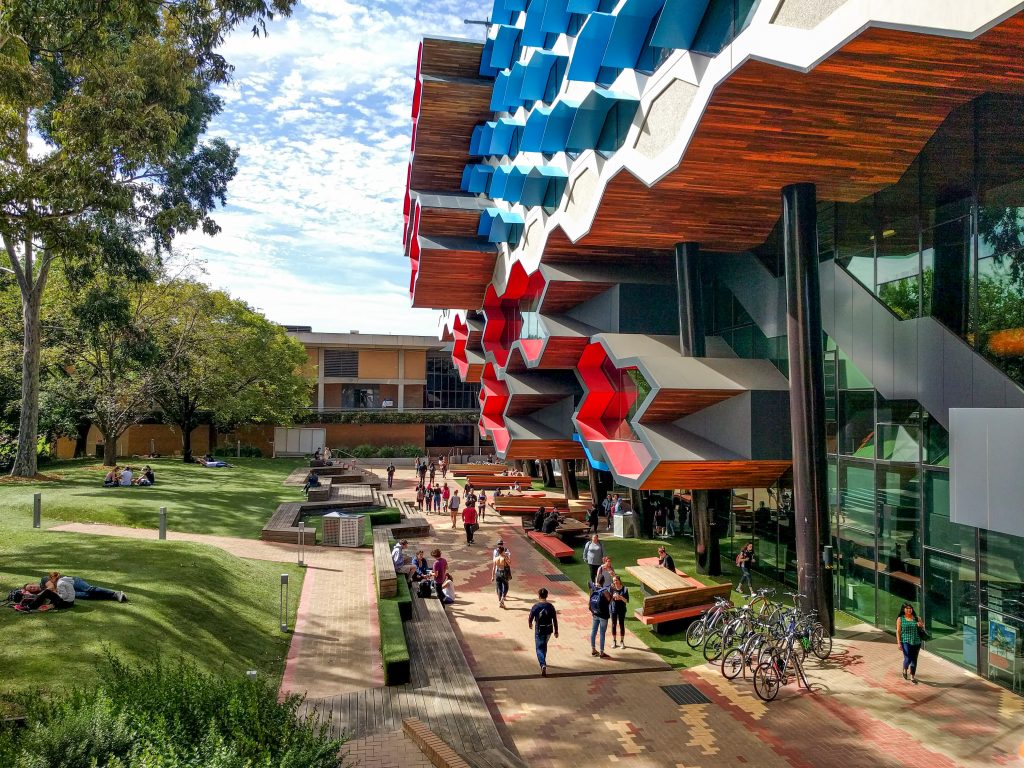
La Trobe University’s AI-first vision: Enhanced productivity, security and innovation
La Trobe University in Melbourne, Australia ranks in the world’s top one per cent of universities and serves more than 35,000 students each year.[1] Known for its academic excellence and research achievements, La Trobe is constantly seeking new ways to streamline operations, drive innovation and better serve its students, staff and partners.
To help it achieve these goals, La Trobe has revealed an ambitious plan to transform the university’s operations by applying an ‘AI-first’ approach.
The university’s Responsible AI Adoption Strategy integrates AI into courses to prepare students for an AI-driven future and supports staff to use AI ethically to enhance productivity and improve the student experience. La Trobe also aims to set new standards for the responsible use of AI in research, innovation and commercialisation.
“The education and technology landscape has changed enormously in recent years,” says Shainal Kavar, La Trobe University’s Chief Information Officer. “Students expect a consumer-grade experience with seamless, mobile-friendly applications for admissions and student management, and they want to be able to perform tasks from anywhere at any time. This reflects the shift toward hybrid learning post-COVID.
“We’ve also seen a heightened focus on cybersecurity as universities are increasingly targeted for their research and intellectual property.
La Trobe University is committed to using the transformational potential of AI to address these challenges.
Choosing the right partners to drive progress
To help deliver its AI-first ambition, the university has partnered with Microsoft and leading cybersecurity and cloud services provider CyberCX, recently signing a memorandum of understanding (MoU) for a Strategic Partnership Framework.
The three-year partnership will draw on the organisations’ respective strengths to safely and responsibly integrate AI into key strategic areas of the university. A key focus of the partnership is ensuring the security of La Trobe’s systems and processes as AI developments occur.
“Our aims for the MoU are to safely and securely transform the way we work across our academic, professional and research areas,” says Kavar. ”We want to make sure everything we do is underpinned by security, including how we protect and use data. And we want the MoU to lead to more strategic conversations that drive innovation.”

Photograph by James Alcock/CyberCX
CyberCX’s Industry Lead for Education, Lou Robertson, says, “As more organisations prepare to enable AI tools in their digital environments, ensuring they are integrated securely and responsibly is a top priority for technology leaders.
CyberCX is proud to be one of La Trobe University’s partners as they work to realise this ambition.
The partnership will also provide opportunities for members of the La Trobe community to build expertise and experience through scholarship opportunities, skills programs, cyber careers promotions, funding for digital transformation, industry-recognised certifications and micro-credentials.
Harnessing the power of collaboration
La Trobe’s Responsible AI Adoption Strategy was developed collaboratively by a cross-functional team from across the university. This team mapped out La Trobe’s strategic ambitions and real use cases, and secured buy-in from a variety of stakeholders, including the executive team and the La Trobe University Council. This collaborative approach was designed to ensure the strategy aligns with the university’s goals and enjoys widespread support.
Team members also participated in a university-led AI Accelerator program to help them clarify and test their ideas. This enabled the team to uncover important insights and make more informed decisions throughout the initial design process. This process included running a targeted adoption program for Microsoft 365 Copilot with close to 200 users from various portfolios to explore its potential and impact.
To ensure AI is used appropriately, the university’s Responsible AI Adoption Committee oversees the governance of all AI initiatives. Chaired by Professor Theo Farrell, Vice-Chancellor of La Trobe University, the committee oversees the ethical application, academic integrity and risk management of AI, supported by a strong policy framework.

Empowering staff to embrace AI’s potential
Ensuring university staff are supported at every step of the AI journey is a core part of La Trobe’s strategy.
“If you give people AI tools without supporting and enabling them, you’re going to get mixed results,” says Kavar. “What we’ve done is pick teams with real issues and provided them with the training and support they need to use these tools effectively.
“For instance, we worked with one of the university’s legal teams to solve some tricky data security and privacy issues. We were also approached by one of the university’s deans for help changing how their academic curriculum is designed.”
By establishing a community of practice that helps members solve their problems, Kavar and his team have been able to better understand how AI can benefit the university and how they can quantify it.
La Trobe is rolling out several training initiatives to educate staff about the university’s strategy and applications for AI and increase internal capability, according to Ali Juma, La Trobe’s Change & Engagement Lead for the Responsible AI Adoption Strategy.
“These include an AI fluency program for all staff, which aims to build a foundational understanding of AI as well as an understanding of what the university is doing,” he says.
La Trobe is also working with Microsoft on an Enterprise Skills Initiative, designed to enhance the technical skills of the university’s digital team. This initiative will focus on infrastructure, data security and AI, and include financial support for training and certification, ensuring the team is equipped to support the university’s AI initiatives.
Microsoft’s investment is part of a broader strategy to ensure the university can effectively leverage AI to increase productivity and improve educational and research outcomes.
Testing AI to improve productivity
Although La Trobe’s AI-first approach is still in its early stages, the university is already exploring several use cases that could significantly benefit its staff, students and partners, leveraging solutions like Microsoft 365 Copilot and Microsoft Copilot Studio.
In one pilot program, the School of Psychology and Public Health is testing a digital assistant, ‘Troby’. Currently being used by staff to retrieve academic articles, the goal is to expand Troby’s capabilities to offer a variety of services, including human resources and information services.
Troby will be made available to staff throughout the university by the end of 2024, and La Trobe will eventually extend its services to students. When fully functional, Troby’s self-service capability is expected to help make it faster and more convenient for users to access information, reducing the need for manual searches.
A second use case involves the exploration and testing of a copilot to help carry out specialised tasks, such as writing course outlines and providing curriculum design support.
The university is also considering using AI to solve its complex business problems in areas like energy consumption and smart campus operations.
Looking ahead to an AI-first future
The release of La Trobe’s Responsible AI Adoption Strategy represents an important next step in the university’s journey to becoming a global leader in using AI to enhance productivity and the student experience. Looking ahead, the university plans to continue expanding its AI capabilities.
In addition to improving productivity and security, we want to explore opportunities in areas we haven’t tackled yet, like research, innovation in student services and even student projects, The potential is huge.
















